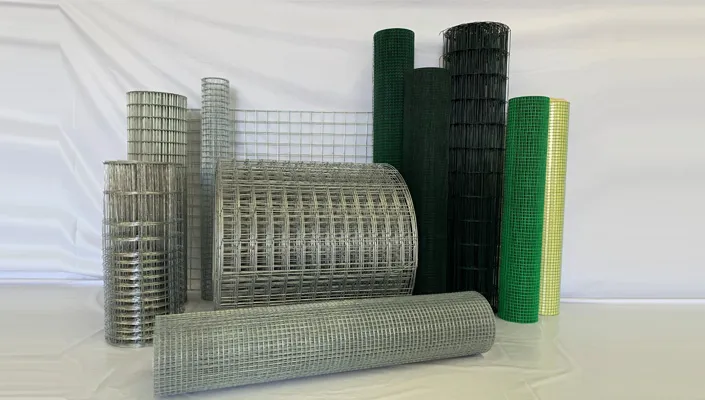welded wire mesh specifications
Understanding Welded Wire Mesh Specifications
Welded wire mesh has become an essential component in various construction and industrial applications due to its strength, durability, and versatility. This article delves into the specifications of welded wire mesh, which are crucial for engineers, builders, and manufacturers alike when selecting the appropriate mesh for their specific needs.
What is Welded Wire Mesh?
Welded wire mesh consists of a grid of wires welded together at their intersections, forming a robust and uniform sheet. This product is typically made from stainless steel, carbon steel, or galvanized steel, and is available in various thicknesses and opening sizes. Its applications are widespread, including reinforcement for concrete slabs, fencing, animal enclosures, and even as a component in industrial machinery.
Key Specifications
1. Wire Diameter The thickness of the wire used is one of the most critical specifications. The diameter typically ranges from 1.0 mm to 12 mm, depending on the application requirements. A thicker wire provides greater strength and load-bearing capacity, while a thinner wire may be sufficient for less demanding uses.
2. Mesh Opening Size The mesh opening size, defined by the distance between the wires, varies significantly based on the intended use. Common sizes include 1 inch by 1 inch, 2 inch by 2 inch, and others. Smaller openings are often used for applications requiring containment or filtration, while larger openings are suitable for structural applications where weight reduction is a priority.
3. Sheet Size Welded wire mesh is manufactured in sheets or rolls. Standard sheet sizes often are 2x4 feet, 4x8 feet, and other dimensions, with custom sizes available upon request. The selection of sheet size will depend on the installation requirements and the dimensions of the area being covered.
4. Mechanical Properties Understanding the mechanical properties, such as tensile strength and yield strength, is vital for ensuring that the welded wire mesh can withstand the intended loads. For example, common tensile strengths range from 40,000 to 80,000 psi, with yield strengths often slightly lower. Manufacturers provide these specifications to guide users in selecting appropriate mesh for structural or non-structural applications.
welded wire mesh specifications

5. Coating Options Depending on the environment where the mesh will be used, different coatings may be applied to enhance corrosion resistance. Common finishes include
- Galvanized Coating A protective layer of zinc that prevents rusting and is suitable for outdoor and moisture-prone environments. - PVC Coating Provides an extra layer of protection and is often used in decorative applications or where aesthetics are a consideration. - Stainless Steel While more expensive, stainless steel is used in highly corrosive environments and offers long-lasting durability.
6. Welding Quality The strength of the welded wire mesh is highly dependent on the welding technique used. High-quality manufacturing processes ensure that the welds are strong and uniform, preventing premature failure under load. It is crucial to choose products that adhere to industry standards to guarantee reliability.
7. Standards and Certifications Compliance with specific standards, such as ASTM or ISO, is important for ensuring the quality and performance of welded wire mesh. Manufacturers often provide details about their compliance with these standards, which can assure end-users of the reliability of the product.
Applications of Welded Wire Mesh
Welded wire mesh is extremely versatile and used in a variety of applications, from construction reinforcement (like slabs and walls) to agricultural fencing, animal containment, and even architectural features. Its strength offers significant structural support, while its flexibility allows for various design possibilities.
Conclusion
Understanding the specifications of welded wire mesh is essential for selecting the right product for any project. Factors such as wire diameter, mesh opening size, mechanical properties, and coating options play a crucial role in determining the performance and suitability of the mesh for particular applications. Whether for construction, agriculture, or decorative purposes, choosing the right welded wire mesh can significantly impact the durability and sustainability of your projects. Always consult with manufacturers or industry experts to ensure you are making an informed choice tailored to your specific needs.
-
Space-Saving Chain Fence Hacks Vertical Gardening with Cyclone MeshNewsJul.16,2025
-
Innovations in Iron Nail Wire Production for Modern ConstructionNewsJul.16,2025
-
Creative Uses of Wire Netting Fence in Modern Landscape DesignNewsJul.16,2025
-
Barbed Wire Fence Innovations in Anti-Climb TechnologyNewsJul.16,2025
-
Architectural Uses of Umbrella Nails for Aesthetic Roof DesignsNewsJul.16,2025
-
Architectural Uses of Razor Barbed Wire in Secure Urban DesignNewsJul.16,2025




